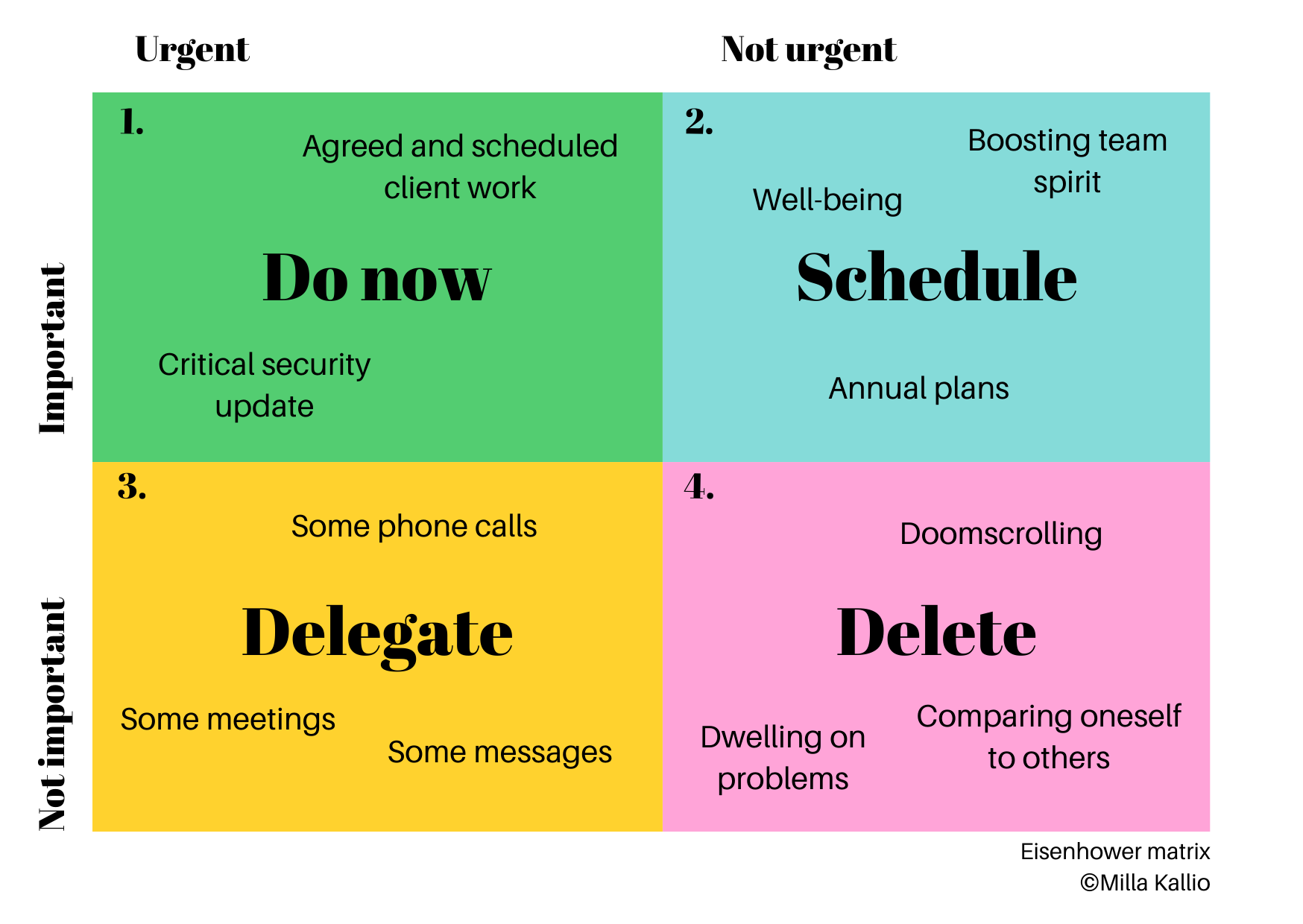
Work-life balance requires prioritisation skills
1 Feb 2024
How aware are you of your work-life balance? Can you manage your career success? How often do you stop to listen to yourself and ask yourself how you feel today?
I was recently training beauty industry professionals on managing their own wellbeing and success. We discussed, among other things, how challenging modern (working) life is and how much it demands of us. Society and especially social media constantly bombards us with pressure packed information, mainly aimed at making us believe that we are not enough. That we should be able to do a little better, be a little more productive, more capable, better educated…
It is true that working life is more intensive than before. Many studies already prove this. But instead of victimisation, we should be looking for solutions on how we can experience well-being and satisfaction in our daily lives, despite the acceleration of working life.
Demands must be balanced by resources
Each of us faces different demands at work. These demands may come directly from our superiors, our clients, our colleagues or even ourselves, but we all have a set of resources we can harness if we so choose. Indeed, working life is like a scale that we should try to keep in balance. If demands increase, where can we find more energy resources to use? Resources can include good leadership, well-being (both physical and mental), social support and effective self-management. With regard to self-management, I would like to highlight time management in particular, because we all have a certain number of hours at our disposal, and no matter how hard we try, in Arnold’s words, to “sleep faster”, it will not increase.
So how do you manage your time when tasks that don’t even seem to belong on your desk are piling up? The answer is by prioritising.
Time-use visualiser is an effective prioritisation tool
The Eisenhower Matrix makes it easy to understand where you spend most of your time, and by filling it in, you can quickly get to grips with potential prioritisation challenges.

1. Tackle important and urgent tasks right away
In this time management framework, box one includes all the things that are both urgent and important. For example, we can count critical security and software updates and pre-agreed client work. As a matter of principle, we should deal with these issues immediately. However, if we focus too much on this box, our working days become exhausting and we can easily start to feel that our work is nothing more than putting out fires.
2. Schedule important but unurgent tasks
Box two, in turn, contains everything we easily forget in the daily grind, when we focus too much on boxes one, three and four. This is where all the things that contribute to our sense of control, well-being and long-term focus go.
3. Delegate urgent but less important tasks
Box three contains the things we should be delegating to others. These are often urgent, but also things that someone else (AI, perhaps?) could do, and possibly more efficiently than we can. If we focus too much on the things in this box, our work quickly becomes very short-sighted, and we can easily start to feel that we are losing our sense of purpose.
4. Delete irrelevant and unimportant things
Box four illustrates the things we should eliminate completely. They are neither urgent nor important. Or have you ever found yourself benefiting from, for example, doomscrolling? By focusing too much on the things in this box, we make ourselves dependent on others when we can’t get anything done on our own. Our wellbeing can also suffer when we spend hours lying on the sofa staring at our phone.
Have a critical look at your calendar
Open your calendar. In which boxes would you place your daily tasks? Are there things you should delegate or stop completely? And what kind of things should you make time for in your calendar? Which things are easily overlooked when you’re working on putting out fires?
By prioritising your work, you increase your wellbeing and give yourself the opportunity to succeed in your career. Also, remember to discuss your work goals with your supervisor or colleagues on a regular basis. This will ensure that you are spending your time on the right things.
Shortcuts
- Demands must be balanced by resources
- Time-use visualiser is an effective prioritisation tool
- 1. Tackle important and urgent tasks right away
- 2. Schedule important but unurgent tasks
- 3. Delegate urgent but less important tasks
- 4. Delete irrelevant and unimportant things
- Have a critical look at your calendar




